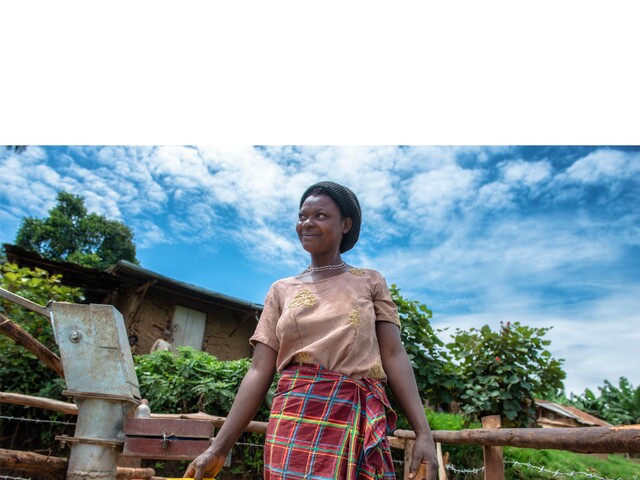
Explore our pages
Narrow down your search by using the filters. Dive deeper using advanced search.
Please find below your results. You can filter results or use our Resources: Advanced Search facility.
The Ministry of Water and Energy (MoWE) of Ethiopia held a workshop to discuss creating an Urban Water Supply and Sanitation Regulatory Authority. The focus is shifting from construction to governance, with new guidelines and key performance indicators being developed. Rapid urbanisation and poor... Read more...
The 12th annual WASH, WRM, and Energy Multi-Stakeholder Forum in Ethiopia focused on resilience and brought together key sector actors Read more...
Increasing access to affordable credit for WASH customers – a key to unlocking demand Read more...
Credit Crunch: Affordable financing options for WASH businesses are badly needed Read more...
During a close out event for USAID's Sustainable WASH Systems Learning Partnership three Ethiopian woredas promised to continue facilitating the learning alliance platforms. Read more...
Clearing the way – helping WASH enterprises get an easier start in Ethiopia. Read more...
A workshop delivers prototypes of more affordable sanitation products that meet the needs of lower income households in Lowland Ethiopia. Read more...
The African Sanitation Policy Guidelines will be of great value to Ethiopia as the country currently does not have an official policy. Read more...
Ethiopia's Ministry of Health has, together with partners, developed a national market-based sanitation training manual to properly implement the guideline on the same topic. Read more...
Taxes and tariffs imposed on sanitation products significantly increase their consumer price, which reduces their affordability Read more...
Some business owners and government officials are concerned about whether intellectual property rights are adequately protected in Ethiopia Read more...
IRC WASH Ethiopia is supporting Shashamane and Negelle Arsi woredas on knowledge management around COVID-19. Read more...
Two Ethiopian districts, Shashamane and Negelle Arsi, are developing water, sanitation and hygiene (WASH) master plans Read more...
Some 50 representatives from towns and regional bureaus participated in the small-town WASH symposium on 3 December at the GetFam hotel in Addis Ababa, Ethiopia. They were joined online by some 30 stakeholders from national and international level during the morning session, focussed on... Read more...
Earning royalties and repatriating profits can play important roles in ensuring a strong WASH marketplace Read more...
For Ethiopia-based businesses that require imported goods or materials, accessing hard currency through the banking system is one of the biggest challenges they face Read more...
In order to achieve improved and sustainable WASH services, IRC WASH Ethiopia has been working on Wash Alliance International (WAI) project implementation in supporting Shashamane and Negelle Arsi woredas (districts). The project is anticipated to enhance effective planning and monitoring,... Read more...
Lessons learned about strengthening the supply chain, stimulating demand and improving the enabling environment. Read more...
IRC collaborated with partners to develop a new approach to assess WASH risks in marginal populations in Ethiopia. Read more...
Ethiopia's regions are promoting sanitation marketing following the national guidelines to drive up access to improved sanitation. Read more...